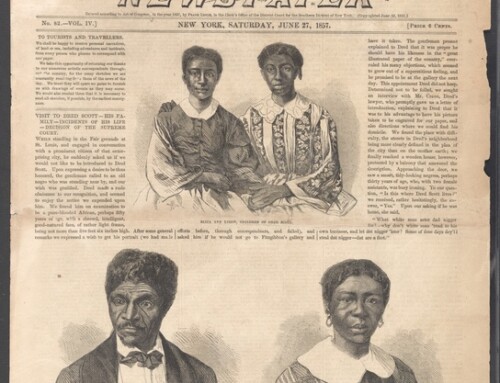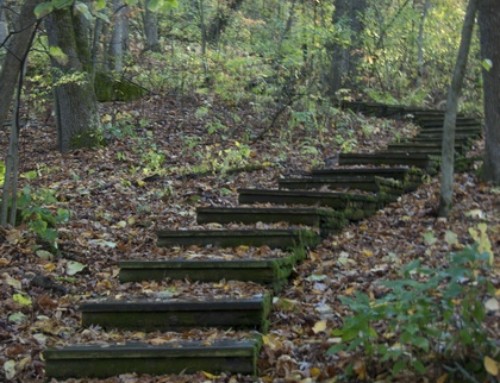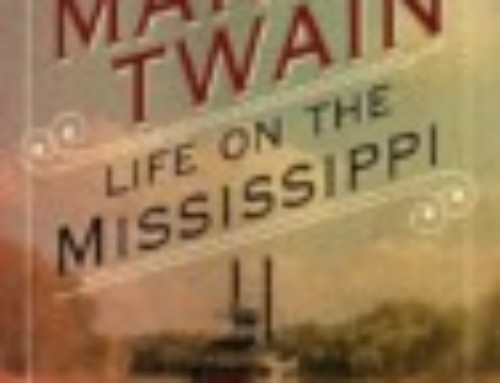It’s almost spring in most places along the Mississippi Valley, and I’m already itching to get out on the river…itching and scratching as I’ve been reading travelogues from river wanderers who can’t seem to write enough about mosquitoes. I understand the impulse.
Mosquitoes are nearly as much fun to talk about as the weather, especially among paddlers and hikers. I’ve spent my fair share of time around the Mississippi, so I’ve also had plenty of time to think about those pesky little creatures, too.
I’ve wondered, for example, why a mosquito-eating equivalent of a whale shark hasn’t evolved, something that could gently glide through the air with its thin wide mouth spread open, vacuuming up the little suckers for food. Maybe there’s potential to genetically modify a dragonfly into this shape.
Honestly, though, I’ve reached my own détente with mosquitoes. I recognize their right to exist, and I won’t let them stop me from river time or hikes through mosquito choked forests. I don’t feel the need to continually swat and swing my arms (as long as they stay off my face).
If I’m going on a long hike through mosquitodom, I usually wear a long-sleeve shirt, pants, and a hat. I haven’t used bug spray in years. In spite of some of the swarms that have followed me at times, I rarely end up with more than a couple of swollen lumps. Maybe I don’t taste very good.
The recent travelogues I’ve read (Where Goes the River? by Albert Tousley and Down the Mississippi by Rowland Raven-Hart) got me searching through my archives for quotes about Mississippi Valley mosquitoes. Some are funny (and meant to be so), while others betray frustration, consternation, and even tragedy. After reading these quotes, I think we will agree that we’re grateful that we don’t have to live near the Mississippi/Arkansas Rivers confluence in the 18th or 19th centuries.
Let’s kick it off with a quote that still rings true today. Benjamin Latrobe was an early American architect (he designed the US Capitol) who also had an interest in public works. While in New Orleans in 1819 (and just a year before dying of mosquito-carried yellow fever), he wrote:
The mosquitoes are so important a body of enemies that they furnish a considerable part of the conversation of every day and of everybody; they regulate many family arrangements; they prescribe the employment and distribution of time, and most essentially affect the comforts and enjoyments of every individual in the country. (Benjamin Henry Latrobe; The Journal of Latrobe; 1905)
Willard Glazier was probably the first person to complete a source-to-sea paddle on the Mississippi River, which he did in 1881. That gave him plenty of time to mingle with mosquitoes:
Water-fowl are found in abundance on all the upper waters of the Mississippi, and while mosquitoes exceed them in numbers, they may almost be said to rival them in size! New Jersey and Florida are famed for their mosquitoes. The swamps and bayous of Louisiana have their myriads; but of all these pestiferous insects I have ever seen and suffered from, I can truthfully say that the mosquitoes of the valley of the Upper Mississippi in numbers and voraciousness are unequalled. (Willard Glazier; Down the Great River; 1893)
Two years before Glazier embarked on his trip, journalist AH Siegfried traveled to northern Minnesota for a few weeks of exploring the headwaters of the Mississippi River. Anyone who has wandered through the bogs and forests of the headwaters region in summer can empathize:
Our stay here was marked in red by the most vindictive attack from mosquitos in all the cruise. No one unacquainted with the Northern Minnesota wilderness in midsummer…can at all imagine the number and fierceness of the ravenous aerial hosts that had beset us all the way from White Earth…They are small, shrewd and persistent. As I lay awake their myriad voices about and above me made a great chorus, really grand and impressive, out of which for a few seconds at a time there came bursts of harmony which I could hardly separate from the idea of a vast, distant chorus of human voices…We were dressed in woollens, our hands were in dogskin gloves and our heads and necks in thick calico hoods and capes, but all such protections were naught when those screaming villains had a mind for blood. (AH Siegfried: Canoeing on the High Mississippi, part I; Lippincott’s Magazine, August 1880)
In 1925, Albert Tousley completed a source-to-sea paddle, along the way recording this fun story about mosquitoes from Don Fuller, an old-timer in Monticello, Minnesota:
I remember when I was young. Mosquitoes used to steal logs out of the river, and we’d have to use shot guns on them, they were so big. But times are less strenuous than they used to be. (Albert S. Tousley; Where Goes the River; 1928)
Tousley made his own observations about mosquitoes, quite a lot a of them, in fact, like this one:
When we landed at Dalcour [Louisiana] and pulled the canoe onto the mud, we danced Apache dances. We had large bandanas, which we flipped, flopped, slapped and swished steadily, but could not drive the armies away. We reached out into the air and grabbed handsful. Our hands, arms, faces and bodies were black with the pests…Someone asked me where mosquitoes spent the winter. Though unable to say, I do know, judging from the lives they led, where those who bit us will spend eternity.
Napoleon, Arkansas disappeared into the Mississippi River a long time ago, but memories of life in the poorly situated town live on. In 1860, a pastor stopped for a few days and observed that the lowlands near town:
generated musketoes by the million–not the diminutive and insignificant species known farther north, but genuine gallinippers of vigorous and huge proportions. By waging a ceaseless warfare against them we succeeded in preserving life, but were alarmingly reduced by our daily loss of blood. (Henry C. Benson; Life Among the Choctaw Indians, 1860)
River communities in Arkansas were popular places to complain about gallnippers. In 1727, Father Paul du Poisson was at Arkansas Post (another ghost town) when he wrote this observation about the mosquitoes he encountered on an early October day:
But the greatest torture — without which every thing else would have been only a recreation, but which passes all belief, and could never be imagined in France unless it had been experienced — is the mosquitoes, the cruel persecution of the mosquitoes…This little creature has caused more swearing since the French came to Mississipi, than had been done before that time in all the rest of the world…When we are on land from ten o’clock until two or three, for the purpose of taking our dinner, we have a whole army to fight. We then make a smudge, — that is to say, a large fire that is afterward smothered with green leaves, and we must stay in the thickest of the smoke, if we wish to avoid the persecution; I do not know which is worse, the remedy or the evil. (Jesuit Relations, Volume LXVII; published in 1900)
In my senior year in high school, I had a night like the one described below, but instead of Arkansas I was near Brainerd, Minnesota. My friends and I slept in a camper, but it wasn’t air tight, so mosquitoes found it easy to get inside. I spent a restless summer night alternating between suffocating from the heat in my sleeping bag and fighting off swarms of mosquitoes when I stuck my head out to catch my breath. I only wish I had known about a “mosquito dose” at that time. Here’s what the Reverand James Flint had to say about his night in Arkansas in the 1820s:
The air was excessively sultry, and the musquitoes troublesome to a degree, which I have not experienced before nor since. I was obliged to sleep under a very close musquito curtain. I would soon become oppressed for want of breath under the curtain, and when I drew it up and attempted to inhale a little of the damp and sultry atmosphere, the mosquitoes would instantly settle on my face in such numbers that I was soon obliged to retreat behind my curtain again. Thus passed those dreadful nights, amidst the groans of my family, calls for medicine and drink, suffocation behind my curtain, or the agony of musquitoe stings, as soon as I was exposed to the air. These were gloomy days indeed…
The inhabitants, while jesting upon the subject, used to urge this incessant torment as an excuse for deep drinking. A sufficient quantity of wine or spirits to produce a happy reverie, or a dozing insensibility, had a cant, but very significant name, — ‘a musquitoe dose.’ (Timothy Flint; Recollections of the Last Ten Years, Passed in Occasional Residences and Journeyings in the Valley of the Mississippi; 1826)
Frederick Marryat was among the Europeans who traveled to the New World in the first half of the 19th century to write books detailing how awful the former colony was. Like many of the others, Marryat spent part of his trip traveling on the Mississippi River, which is where he became intimately acquainted with mosquitoes.
There is, however, one serious drawback in all America to life in the woods, or life in cities, or every other kind of life; which is the manner, go where you will, in which you are pestered by the mosquitoes. Strangers are not the only sufferers; those who are born and die in the country are equally tormented, and it is slap, slap, slap, all day and all night long, for these animals bite through everything less thick than a buffalo’s skin. As we ascended the river they attacked us on the crown of the head—a very unusual thing,—and raised swellings as large as pigeons’ eggs. I must have immolated at least five hundred of them upon my bump of benevolence. Whatever people may think, I feel that no one can be very imaginative where these animals are so eternally tormenting them. You meditate under the shady boughs of some forest-king (slap knee, slap cheek), and farewell to anything like concentration of thought; you ponder on the sailing moon (clap again, right and left, above, below), always unpleasantly interrupted. It won’t do at all: you are teased and phlebotomised out of all poetry and patience. (Captain Frederick Marryat; Diary in America, Series One; 1839)
What are some of your favorite quotes about mosquitoes?
©2019, Dean Klinkenberg





